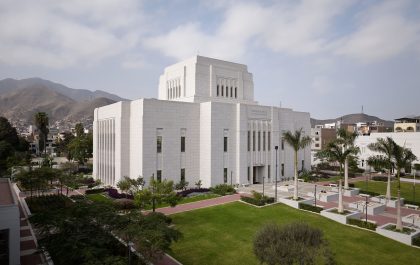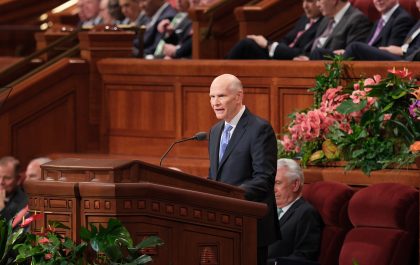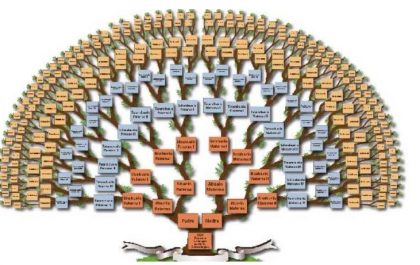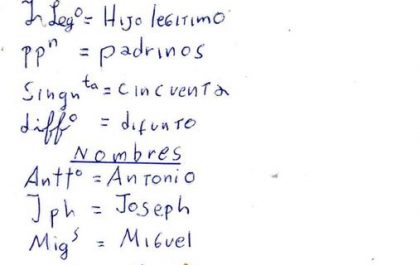As a young man my least liked topic was grammar. Now, as an adult, I find it interesting and especially in relation to my Biblical Hebrew studies. A few days ago, I discovered a teaching of The Church of Jesus Christ of Latter-day Saints emphasized by Hebrew grammar.
I have been reviewing the concept of the Hebrew Construct Chain in the book, Basics of Biblical Hebrew (3rd edition, by Gary D. Practico and Miles V. Van Pelt). The authors explain that the word “of” does not exist in Biblical Hebrew. “Rather, Hebrew expresses the ‘of’ (possessive) relationship between two nouns by what is called the construct chain” (p. 93).
They explain that the first noun in the chain is given in construct form and the last one in the absolute form, also known as the lexical form (what we use to look up words in the lexicons, or Biblical Hebrew dictionaries). I am simplifying as in all grammatical concepts, there are exceptions. There is no need to say much more about the grammar, but a couple of examples will help.
The expression “Prince of Peace” (שַׂר־שָׁלֹֽום) is composed of two words, prince-peace. One must add the “of,” «Prince of peace,» when translating. A second example is that of “place of rivers,” composed of the words place-rivers, and translated as “place of rivers” under certain construct chain conditions.
For every grammatical principle I learn, I love to look for real Biblical examples, which I note down in flash cards. On one side I write the word, expression, or phrase in Hebrew and on the other, its translation. I make use of an excellent software for just such searches, including the construct chain.
This is how I arrived at the verse in Isaiah 45:17, and found the construct chain תְּשׁוּעַ֖ת עוֹלָמִ֑ים. The first word (Hebrew is read from right to left) is תְּשׁוּעַ֖ת, salvation, and the second, עוֹלָמִ֑ים, eternal or without end. Literally, salvation of eternity, although it is translated as eternal salvation, everlasting salvation or endless salvation.
At this point I felt the Spirit in his role as teacher, as one who reminds us, and as one who testifies of Christ, which led me to think of another Scripture, endless torment (D&C 19:6) and eternal damnation (D&C 19:7). So, in my flash card I wrote, “salvation of Eternity,” thinking of “salvation of God.”
I invite you to study D&C 19:4-12 and the surrounding verses, but here we will only quote verses 10 through 12: “For, behold, the mystery of godliness, how great is it! For, behold, I am endless, and the punishment which is given from my hand is endless punishment, for Endless is my name. Wherefore—Eternal punishment is God’s punishment. Endless punishment is God’s punishment.”
Now, let us return to the verse in question in Isaiah, and we find ourselves with the following context: “But Israel shall be saved in the Lord with an everlasting salvation” (Isaiah 45:17). A more literal translation would render this as: “But Israel shall be saved in Jehovah with a salvation of Eternity.” That is, with a salvation of Jehovah. The same Jehovah, Jesus Christ, the Alpha and the Omega who spoke with Joseph Smith in Doctrine and Covenants 19.
With all my heart I wish to testify that Jesus is the Christ, the Jehovah of the Old Testament or Hebrew Bible, our Redeemer and the head of The Church of Jesus Christ of Latter-day Saints, the Church that bears His name.
Photo: Momentmal by Pixaby



















Maravilloso!!!!